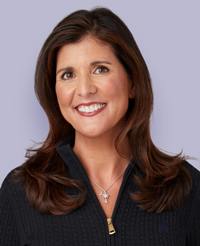Home State Blues: How Does Nikki Haley’s South Carolina Showing Compare with Her GOP Predecessors?
Nearly twice as many Republican presidential candidates have lost their home state than have been victorious among those who ultimately did not win their party’s nomination

Over the last half-century, the vast majority of presidential candidates had already suspended their campaigns by the time Primary Day in their state came up on the election calendar.
And, of those candidates who were still actively campaigning, Haley is hardly the first Republican to fall short in her political backyard.
Since 1972, Republican White House hopefuls have failed to win their home state primary more than a dozen times:
- John Ashbrook, Ohio (1972): The GOP congressman did not even appear on the May 2nd ballot in Ohio as President Richard Nixon won uncontested. Ashbrook remained in the race until June 7th and appeared on primary ballots in a subsequent half-dozen states.
- George H.W. Bush, Texas (1980): Bush won a handful of states during the 1980 GOP primaries but lost a close contest to Ronald Reagan in Texas on May 3rd, falling 3.6-points shy of victory with 47.4 percent.
- John Anderson, Illinois (1980): Anderson finished in second place, 11.7 points behind Reagan in the Californian’s birth state in the March 18th primary. Anderson would launch his independent bid approximately five weeks later on April 24th.
- Phil Crane, Illinois (1980): Anderson’s fellow Illinois U.S. House delegation member won just 2.2 percent in his home state – a number he had previously eclipsed in Alabama (2.4 percent) and Georgia (3.2 percent) and would later exceed in Washington, D.C. (3.6 percent) and New Mexico (7.4 percent) after suspending his campaign on April 17th.
- Pat Robertson, Virginia (1988): Robertson won four caucuses, but only reached 20 percent in a primary vote once, in Oklahoma. In Virginia’s March 8th contest, the televangelist received just 13.7 percent in a distant third place behind George H.W. Bush and Bob Dole.
- Bob Dornan, California (1996): The California U.S. Representative won just 0.9 percent of the March 26th vote in the Golden State – good for sixth place. It was his third best primary showing behind Mississippi (1.4 percent) and New Mexico (1.2 percent) – the latter held after he withdrew from the race in mid-April.
- Alan Keyes, Maryland (1996, 2000, 2008): The conservative perennial candidate never reached double-digits in his home state, receiving 5.4 percent in 1996, 6.7 percent in 2000, and 1.1 percent in 2008 – two months before he abandoned his GOP bid for the Constitution Party.
- Ron Paul, Texas (2008, 2012): Congressman Paul was the last Republican challenger to suspend his campaign against the presumptive nominees during the 2008 and 2012 cycles, winning just 4.9 percent on his home turf in 2008 and 12.0 percent in 2012.
- Marco Rubio, Florida (2016): Rubio had previously won a caucus in Minnesota, the D.C. convention, and the Puerto Rico primary, but falling 18.7 points shy of Trump in Florida with 27.0 percent saw him end his campaign the night of the March 15th primary.
Every Republican presidential nominee since 1972 has won their home state primary [Note: Bob Dole’s home state of Kansas did not did hold a primary during the 1996 cycle].
However, seven non-nominees were able to still carry their home state:
- Ronald Reagan, California (1976): Reagan beat President Gerald Ford by 31.1 points with 65.6 percent on the last day of primaries – June 8th.
- John McCain, Arizona (2000): The U.S. Senator defeated George W. Bush by 24.3 points with 60.0 percent on February 22nd.
- Mike Huckabee, Arkansas (2008): Huckabee cruised to a 40.3-point victory over McCain with 60.5 percent in one of his multiple southern state Super Tuesday wins on February 5th.
- Mitt Romney, Massachusetts (2008): Romney beat McCain by 10.2 points with 51.1 percent – one of just three state primaries the governor won before withdrawing from the race two days after his home state Super Tuesday victory.
- Newt Gingrich, Georgia (2012): It took Gingrich a month and a half and his home state to get a victory after his January win in South Carolina. The former U.S. House Speaker won 47.2 percent – 21.3 points ahead of Romney.
- Ted Cruz, Texas (2016): Cruz won nearly a dozen state caucuses and primaries, but his home state victory with 43.8 percent was the first plurality win ever by a Republican in a Texas presidential primary. He defeated Trump by 17.0 points.
- John Kasich, Ohio (2016): The Ohio governor was the last challenger to exit the 2016 race, but his only victory was a modest 11.1-point win over Trump in his home state with 47.0 percent.
Donald Trump’s home state primary in Florida will be held on March 19th this cycle.
Follow Smart Politics on X/Twitter.

Did Ashbrook fail to appear on the ballot due to insufficient signatures or some other technicality? (If he bypassed it by choice then, well, he really did not “lose” the 1972 OH primary.)
The media reports notwithstanding, ex-Ambssador Haley DID win the non-binding primary election in NV; per state election law, the NAMED candidate with the most vote tally is deemed to have won the election.
As well, will Haley win or at least come close to winning in Democratic-leaning and/or populous venues in the Wolverine State, such as counties of Kent, Ingham, Macomb, and Wayne – following her victories in Charleston and two other counties in her home state?
Last but not least, it has dawned on yours truly that, for this presidential cycle, the Michigan contest (Tuesday 27 of 02 ’24) will be the FIRST time that both major parties will stage ‘BINDING’ (i.e. pledged delegate-awarding) nominating contests ON THE SAME DAY.